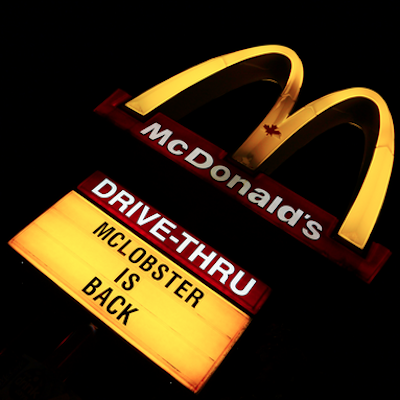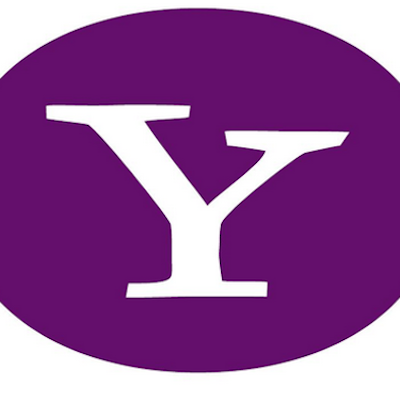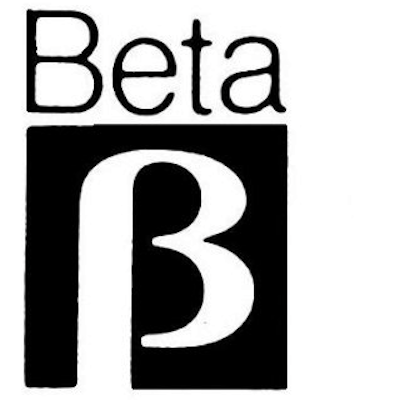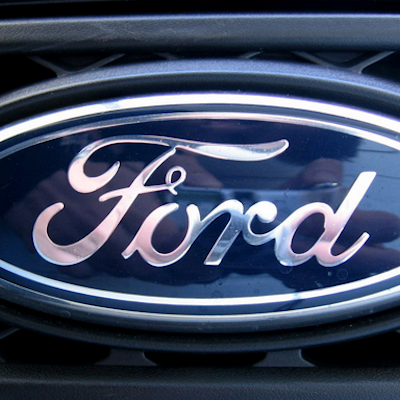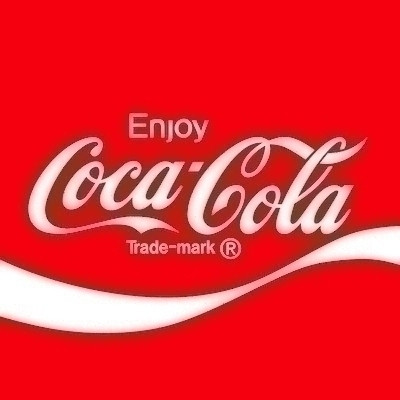Emerging Industries That Can Catalyze RI Economic Development
Monday, February 17, 2014
New and emerging industries related to food, marine technology, and localized manufacturing could be positioned to jump-start economic development in Rhode Island. So says Economic Intersections of Rhode Island, a private-sector generated report focusing on collaborative solutions for the state's economy. The report was written based on the contributions of more than 200 distinguished business leaders, service organizations, and professionals from across the state. Jointly published by The Rhode Island Commerce Corporation and The Rhode Island Foundation, Economic Intersections of Rhode Island synthesizes the collaborative proposals made by the teams of participants.
This week, GoLocalProv investigates the second of the report’s five major themes, looking at the most creative, bold and exciting new industries that will help to get the Ocean State back on its feet. To get the most thorough and groundbreaking economic breakdown of the report’s specifics, we turned to our business partners at Bank RI for commentary and analysis.
“Promoting Emerging Opportunities”
GET THE LATEST BREAKING NEWS HERE -- SIGN UP FOR GOLOCAL FREE DAILY EBLASTWhile the first section of the report, “Increasing Impact of Competitive Advantages,” looked at ways for Rhode Island to hone and strengthen the industries it has traditionally excelled at, “Promoting Emerging Opportunities” examines how Rhode Island can position itself front and center within hot emerging industries. The report profiles how to get new businesses off the ground in fast-growing and sectors from underwater cybersecurity to artisanal produce. Rhode Island’s rich history, character and array of resources position the state to grab the reins as tomorrow’s economy bolts out of the gate. “Promoting Emerging Opportunities” features five key suggestions for helping our state best harness these new economic sectors where Rhode Island is poised to become a leader.
Claim Rhode Island as the Center for the Maker Movement
Rhode Island has always been a state of “makers,” home to some of the most prolific manufacturers of glass, furniture, jewelry, and textiles the world has ever seen. As the demand for high-quality, locally made artisanal goods continues to rise, and communities of hobbyists, small business owners and manufacturers continue to proliferate, Rhode Island is poised to assert its place as the capital of the ‘Maker Movement.’
To help RI reach the forefront of the maker economy, the report calls for the documentation of maker-related assets and capabilities. These would include manufacturers, as well as students and other resources connected to the state’s many colleges and universities. In addition, the state can create a Maker’s Guild to locate sector participants and coordinate benefits and services. The final suggestion for leveraging this new market is to integrate the maker economy fully into local communities, developing educational resources to be shared with existing local businesses. As Economic Intersections points out, the maker economy is well underway—and if it receives the support it needs, it will prove to be a staple of the Rhode Island economy for years to come.
Establish a Regional Center of Excellence for Marine and Cybersecurity Technologies
Rhode Island’s historical excellence in maritime industries gives it an edge in seizing the momentum produced by emerging fields within marine technology.
Already, groups including the University of Rhode Island Graduate School of Oceanography, Salve Regina University, the Naval Undersea Warfare Division Newport, and even private businesses like Raytheon, are working to develop the fields of resource management, undersea acoustics, and device manufacturing within Rhode Island.
In order to make this industry as beneficial for the state’s economy as possible, Economic Intersections proposes convening stakeholders to coordinate R&D, testing sites, and opportunities to garner lucrative funding. The report notes the work that the Southeastern New England Defense Alliance has already done towards this goal by beginning to collaboratively gather stakeholders in these new industries. Additionally, the RI Foundation report calls for an independent entity to oversee the creation of a Marine Center, which will serve as the hub for collaboration and public relations for this conglomerate of emerging businesses.
Support a Stronger and More Resilient Rhode Island
A prosperous Rhode Island for generations to come will be a Rhode Island that is able to protect its rich resources and the network of dynamic ecosystems that gives the state so much of its power and potential. Building off of the conclusion drawn by the Rhode Island Nursery and Landscape Association (RINLA) that Rhode Island “has the greatest diversity in terms of its agricultural products and plant based industries” of any state in the nation, Economic Intersections envisions a future where Rhode Island serves as a leading thinker and testing ground for strategies to protect agricultural and costal ecosystems in a changing global climate.
The RI Foundation report calls for Rhode Island to convene a Resilient Economy Collaborative, which will plan future economic development through resiliency (including recruiting firms associated with resilience technology and investment to come to Rhode Island) and coordinate efforts to secure lucrative national grants. Already numerous concerned parties, including the Rhode Island Department of Environmental Management, the City of Providence, RINLA, University of Rhode Island, and a host of environmental nonprofits are meeting in an effort coordinated by the RI Foundation to develop a coordinated policy agenda going forward.
Strengthen the Food-Value Web to Increase Food-Related Jobs
As any Rhode Island resident will tell you, the little state packs a disproportionate punch when it comes to food and food-related businesses. Currently Rhode Island boasts some 1,200 small business farms in addition to at least 146 food and beverage manufacturers, which includes wineries, breweries, and distilleries, as well as national food distributors like United Natural Foods, Inc. Economic Intersections conceives of these businesses, and the scores of others that they interact with, as part of a “food value web,” a series of mutually benefitting businesses that could bloom into, as one participant called it, the “Silicon Valley of food.”
With “local” placing as the most influential product claim of 2012 amongst three-quarters of retailers with the National Association of the Specialty Food Trade, Rhode Island and its bustling conglomerate of food manufacturers is right in line with the public’s increasing demand for quality local and nutritious food. The Economic Intersections Report calls for more attention to be drawn to RI’s food scene, encouraging Rhode Islanders to eat local and others nationally to try the distinctive and delicious products emerging from the Ocean State. “Rhode Island’s strong dining sector provides a showcase for local growers and food and beverage manufacturers” said BankRI’s Commercial Banking Director, Will Tsonos, “The partnership is mutually beneficial as the dining sector benefits from quality product while producers are provided with a platform to grow nationally.”
On the logistical side, Rhode Island’s burgeoning food industries would be well-served by supporting additional growing activity and supporting increased capacity for manufacturers. Meanwhile, the state can help those manufacturing food and beverages within Rhode Island grow their businesses by providing them with skills, training and avenues for coordinated pursuit of funding and other resources.
Coordinate and Enhance Entrepreneurship and Small Business Support Services for the Food-Health Nexus
Rhode Island is emerging at the forefront of food and health industries of all kinds, and the overlap within these dynamic industries can be thought of as the “food-health nexus.”
Johnson and Wales has recently established the new Food Innovation Nexus, an independent nonprofit designed to spur innovation in therapeutic and medicinal foods. Research into these industries and their potential for expansion is still necessary to pinpoint targets within the market. The RI Foundation report also calls for the state to build upon organizations like the Food Innovation Nexus to create resources for small businesses and entrepreneurs in the field.
As is the case with so many emerging industries, the food-health nexus is one in which private, public and non-profit stakeholders can all play a part in collaborating to create an economic sector that will serve as a lynchpin of the Rhode Island economy for decades to come.
This column is part of an ongoing sponsored content series with BankRI.
Related Slideshow: 10 Historically Bold Moves Made By Big Companies
Related Articles
- Block/RI Taxpayers Organization Challenge General Assembly on Economy
- Guest MINDSETTER™ James Sheehan: RI Needs to Bold in Rebuilding Economy
- NEW: Providence Voters Pessimistic on Economy
- Report: Rhode Island’s Economy is Slowing
- URI Economist: RI Economy Close to Stalling
- URI Expert: State Economy is “Stuck in Neutral”
- Study Highlights Value of Competitive Advantage to RI’s Economy
- CCI Report Shows RI Economy ‘Shifting Into High Gear’
- NEW: RI Economy Continues to Grow, Report Says
- Rhode Island’s Struggling Economy: Top Stories in RI in 2012
- URI Expert: Too Early to Tell if Economy is Improving
- 10 Years Ago RI Businesses Were Optimistic About the RI Economy
- Curtis Parvin: Impersonal Consumerism in a Failing Economy
- Is RI’s Economy on the Rebound?
- NEW: RI Economy Stalled, Reports Bryant and RIPEC
- Rob Horowitz: Chafee’s Political Fortunes Tied to Economy
- URI Expert: RI Economy Following ‘Stop and Go’ Pattern
- What Rhode Island Can Do to Move the Economy Forward
- A LIVELY EXPERIMENT, RI’s Economy
- Don Roach: President Obama has Failed to Turn Around the Economy
- Julia Steiny: Economy To Youth: Make Your Own Jobs
- NEW: Report Says RI Economy Picking Up Steam
- Rob Horowitz: Minimum Wage Boost Good for Rhode Island Economy
- URI Expert: RI Economy Gaining Momentum
- Aaron Regunberg: How Walmart Workers Could Save the U.S. Economy
- Executive Office Of Commerce Won’t Help RI Economy—Critics
- LISTEN: RI Economy on the Rebound?
- NEW: Report Suggests Port Could Create Jobs, Boost Economy
- Russell Moore: Election 2014: It’s the Economy, Stupid
- URI Expert: RI Economy Getting Left Behind
- Alex and Ani Fuels Economy - Creates Thousands of Jobs in RI
- Exposing the Big Lie of the US Economy
- Lardaro Report: RI Economy Stalls
- New RI Web Site Ties Legislatures Failure to Economy - www.OSTPA1.com
- State Seeking Strategic Plans to Address Economy
- URI Expert: RI Economy Still Staggering
- Bill Delahunt: A New England Patent Office Will Boost the Economy
- Fed Issues Report on New England Economy - Beige Book
- NEW: Langevin to Talk Jobs, Economy During Westerly Community Day
- RI’s Baby Bust: Poor Economy Forced Birth Rates to Decline
- Study Finds Racial Gaps Putting RI’s Economy, Future at Risk
- URI Expert: RI Economy is Dead in the Water
- Blais: RI’s Leaders Need an “Ah-Ha” Moment Soon for the Economy
- Guest MINDSETTERS™ William Walaska & David Bates: Working to Turn the Economy Around
- NEW: Langevin, Agriculture Leaders to Detail Funding to Boost RI Economy
- RI’s Business Future: The Companies Who Can Grow The Economy
- Travis Rowley: This Economy Is Gay




